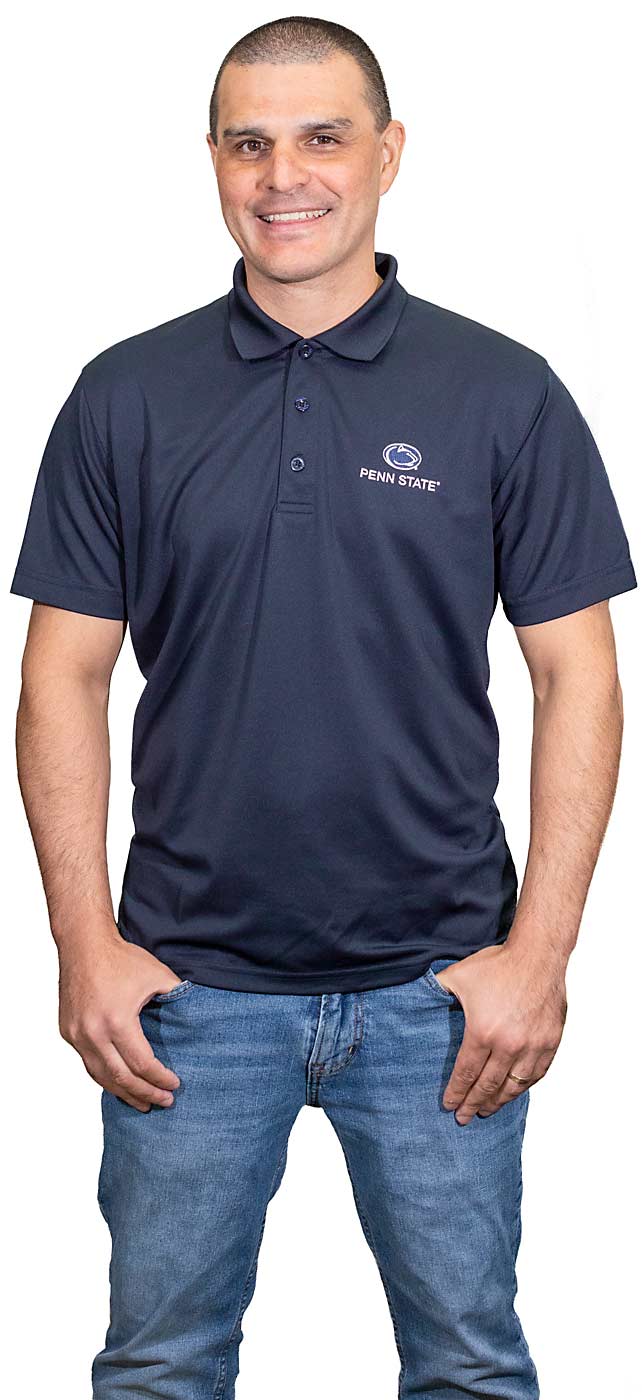family background/ Johanny grew up working on a coffee farm and earned a bachelor’s degree in agronomy and a master’s degree in crop protection from the University of Costa Rica. He’s the son of Marea Elisa Chinchilla and Gerardo Castro.
age/37
grower/San José, Costa Rica
crops/Apples
business/graduate student, Penn State University

How did you get your start?
At about 7 years old, I was working on a small coffee farm with my grandfather, where I got interested in agriculture. I continued to work in coffee until I was about 18 years old. When I started my undergrad degree, I started working with other crops.
We have many diverse crops in Costa Rica, because it’s a tropical country, and I was able to work with all of them in my first four years of school. I would say that I’d be happy to work with any of them, from pineapple to palm oil to rice. It was a very good experience for getting interested in agriculture. I knew my career choice was right.
How did you begin working with apples?
When I graduated, I started working with bananas with Chiquita Brands, and most of the work was field work — soil science, fertilization and so on. There came a point when I wanted to learn something else, such as where foods go, how to commercialize them and maintain quality.
I had learned the background in the field, but I felt like something was missing. I decided to pursue my master’s in postharvest diseases, quit my job in bananas and start working with pineapples.
There, I got interested in how to manage pathogens and quality, especially for export. Pineapples are exported from Costa Rica to the U.S., Europe and sometimes Asia, with shipping times taking three to four weeks in transit.
So, what’s my connection with temperate fruits like apples? For my master’s, I worked with a fungus called Penicillium – a very important fungus in many different crops.
I thought it would be good to learn about something that is important to both tropical and temperate crops and find a gap in knowledge to gain more experience and techniques. That interest was the connection that led me to Pennsylvania and apples.
What interested you in postharvest research?
My heart is divided between both worlds. I really enjoy farming because of the field work, and I love research because you are learning new things, especially something that no one knows.
I’d be happy working both sides, but if I needed to choose one, it’d be research. My main goals are: how can I connect research to the grower and how can I give recommendations and give the information that I’m learning so they can make informed decisions?
Those are part of the reason why I chose this laboratory, because they are working on research directly with growers. It was the perfect match for what I was looking for.
What are you working on now?
In Pennsylvania, there’s a knowledge gap in what pathogens are causing postharvest diseases. There’s some information about what species are out there but not necessarily where they come from and how to best manage them.
It’s really exciting to help figure out where the sources of the pathogens are and how you should focus your management strategies — being able to take a rotten apple and identify what fungus is present, then look at it at a molecular level. We get a DNA sequence that says what the pathogen is, then find solutions for managing it.
The whole process includes working with the growers, examining potential sources such as bins, picking bags and air in the packing house — all to find answers.
I’d say it’s a little like being a crime scene investigator. You want to detect where the pathogen is so you can control it based on the information you’ve collected.
What would you tell young growers about the research path?
If you are interested in going into research, I’d say you need to be curious and detailed. For instance, if you see a rotten apple with a circular pattern with particular visual structures, and you feel compelled to ask questions — well that’s the start.
Science is partly about asking questions. If you’re able to seek out answers to your questions, then you’ll be happy working in research. The work is simply question after question. Because once you discover one thing, then you have new questions. It never stops.
One bit of caution: It’s easy to get lost in the questions. All your questions should have an objective. If you want to go into research, you also need to find the right person or program to help you discover the answers to your questions.
—TJ Mullinax






Leave A Comment